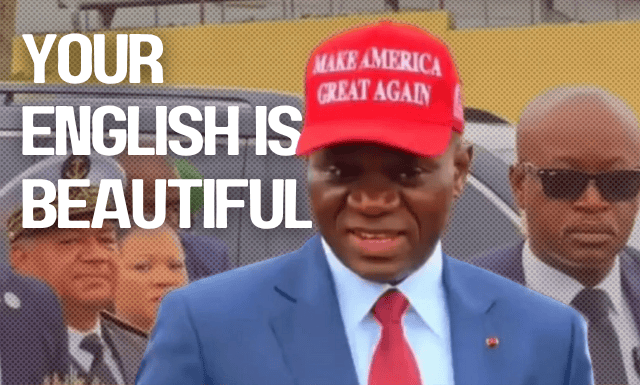Much has been written about the recent, scandalous reception of four West African leaders by Donald Trump. Telling the Liberian President, as Trump did, that his “English is beautiful” was deeply embarrassing—but not only for Trump. That Trump seemed unaware of Liberia’s existence, let alone that English is the mother tongue in this nation founded by freed slaves, is hardly surprising. What is shocking, however, is that Liberia’s President, Joseph Nyuma Boakai, silently endured the humiliation without offering even the politest correction. A video that later surfaced appeared to show President Boakai delivering a forceful rebuttal to Trump, but the rousing speech was soon revealed to have been AI-generated. To compound the farce, Gabon’s President, Brice Oligui Nguema, returned home and disembarked from his plane wearing a MAGA cap.
This sycophancy echoes the behaviour of Dutch NATO Secretary-General Mark Rutte, who recently invoked a “daddy” metaphor in reference to Trump. Such deference is almost to be expected from a Western leader; after all, subservience to the United States has long been a defining feature of European politics. By contrast, many African leaders — including those in West Africa — seldom miss an opportunity to strike the anti-colonial drum in their speeches, all while presenting the West with the bill for centuries of plunder and oppression.
What, then, accounts for the grovelling and fawning of the West African leaders during their visit to the leader of the Western world?
Perhaps the anti-colonial rhetoric used to rally ruling party masses at home is, in truth, nothing more than rhetoric.
The new leader of Burkina Faso, Ibrahim Traoré, has proven adept at wielding the double-edged sword of anti-Western rhetoric, even as he simultaneously exploits the nation’s resources and suppresses its citizens. Many decolonisation activists, particularly in Western countries, appear to hold Traoré in high regard, drawn to his impassioned revolutionary speeches. Yet, alongside grave human rights abuses perpetrated by his army and the silencing of journalists, Traoré remains firmly aligned with the dictates of the IMF and the World Bank, while readily courting a new colonial patron in Russia. Read Rosebell Kagumire’s compelling portrait of Traoré in this newsletter.
A rapidly growing generation of African protesters sees through this pseudo anti-colonial propaganda. Those wishing to deepen their understanding of the struggle for freedom across the continent would do well to heed the insights of these activists.
ZAM Team


